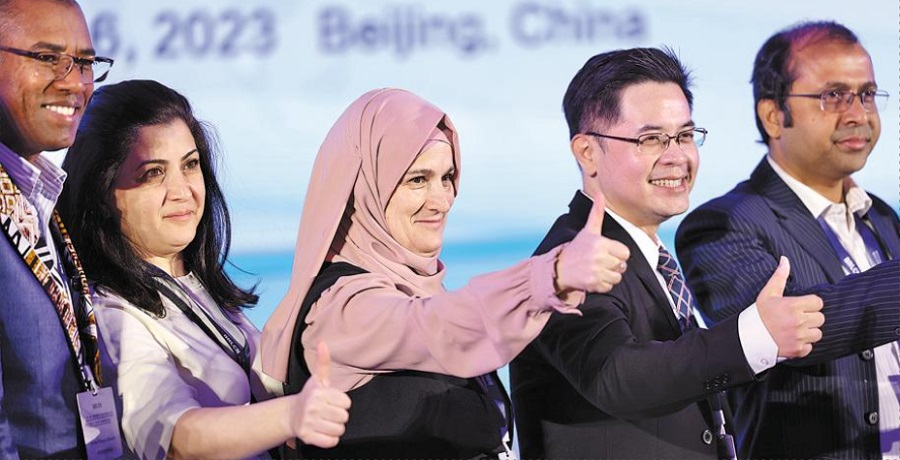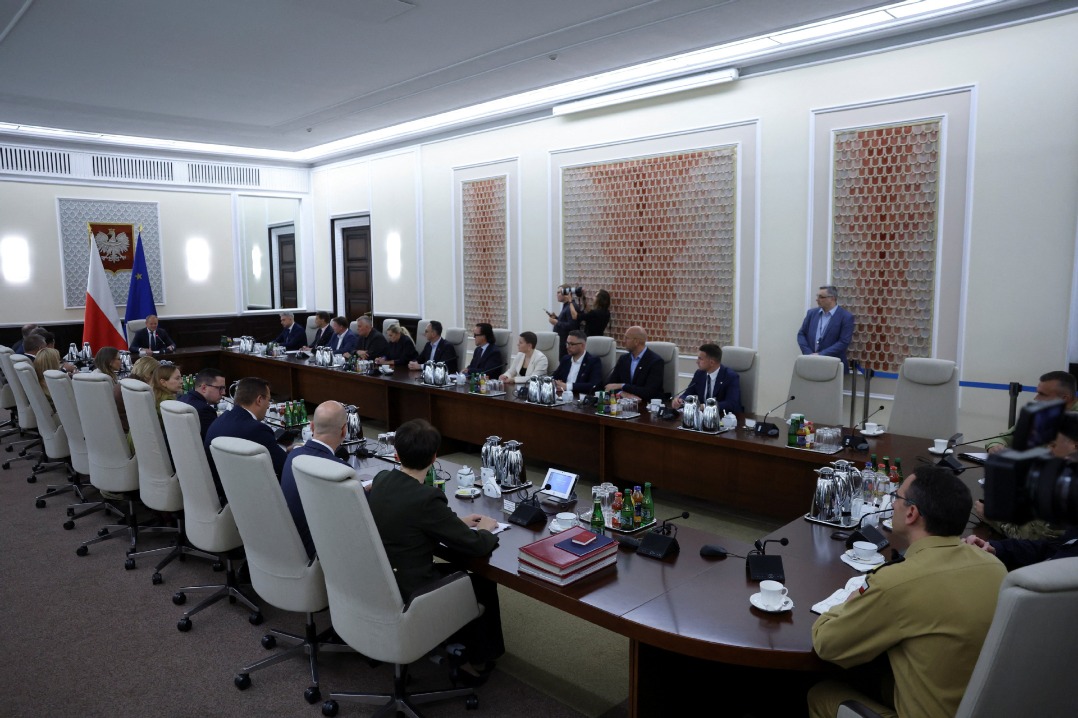Network formed under BRI to help tackle language barriers


Forum: Language seen as key to cooperation
Language educators from more than 50 countries involved in the Belt and Road Initiative formed a network on Monday in Beijing to help remove language barriers and address cultural misunderstandings.
The initiative was proposed by China 10 years ago in a tribute to the ancient Silk Road trade route, which stretched from China to Europe. Its reach has since expanded, encompassing regions that use about 60 different languages.
Zhai Dongsheng, director-general of the Belt and Road Center of the National Development and Reform Commission, said that language is the basis of communication and cooperation, and inaccurate translations can result in negotiation hurdles and diplomatic misunderstandings.
"The BRI participants are scattered across a wide range of areas where different languages are spoken and different traditions practiced," he said at the 2023 Belt and Road Forum for Language and Culture Collaboration.
The forum served as the inaugural meeting of the newly formed Belt and Road Languages and Cultures Network. According to its charter, the network is a nongovernmental organization tasked with bolstering language education and promoting linguistic connectivity among BRI participants.
Zhai said a group of talented people with global vision, a good understanding of international rules and a good command of foreign languages was needed to advance BRI-related cooperation.
He said he hoped the network — whose members include universities and research institutions in language education and cultural exchange — could help train more talent and overcome invisible barriers.
Speaking at the inaugural meeting, Vice-Minister of Education Wang Guangyan said the Chinese language has helped promote and facilitate cross-cultural communications. Chinese is taught in more than 180 nations and regions and is part of school curriculums in several countries, he said.
Wang said the education ministry supports the establishment of Confucius Institutes and Confucius Classrooms in Belt and Road countries, and encourages them to include the Chinese language in their national education systems.
The language network was inaugurated in the run-up to the third Belt and Road Forum for International Cooperation, a two-day event that will open in Beijing on Tuesday.
China Daily, the country's flagship English-language newspaper, is the chair of the network's inaugural council, responsible for convening council meetings and coordinating major activities. The network's secretariat is located in China Daily Media Group's language-education branch, 21st Century English Education.
Addressing Monday's inaugural meeting, Qu Yingpu, publisher and editor-in-chief of China Daily, said the BRI's reach has spread to Asia, Europe, Africa, Oceania and the Americas over the past decade, and it has been hailed by countries that were once cradles of various civilizations.
"This demonstrates the openness of the BRI and the respect the BRI has shown to different human civilizations," he said.
Qu said the network will encourage its member organizations to make the most of their strengths in language and cultural exchanges, carry out related research, boost people-to-people exchanges under the framework of the BRI, and contribute to the building of a community with a shared future for humanity.
Luo Xuanmin, president of the China Association for Comparative Studies of English and Chinese and a professor at Tsinghua University, said that language is the foundation for achieving the BRI's five cooperation priorities — policy coordination, infrastructure connectivity, unimpeded trade, financial integration and people-to-people bonds.
Luo called for more attention to be paid to lesser-known languages, especially those used in some Asian and African countries. He also underscored the need to respect and understand foreign cultures, oppose and resist cultural hegemony, and safeguard linguistic and cultural diversity.


































